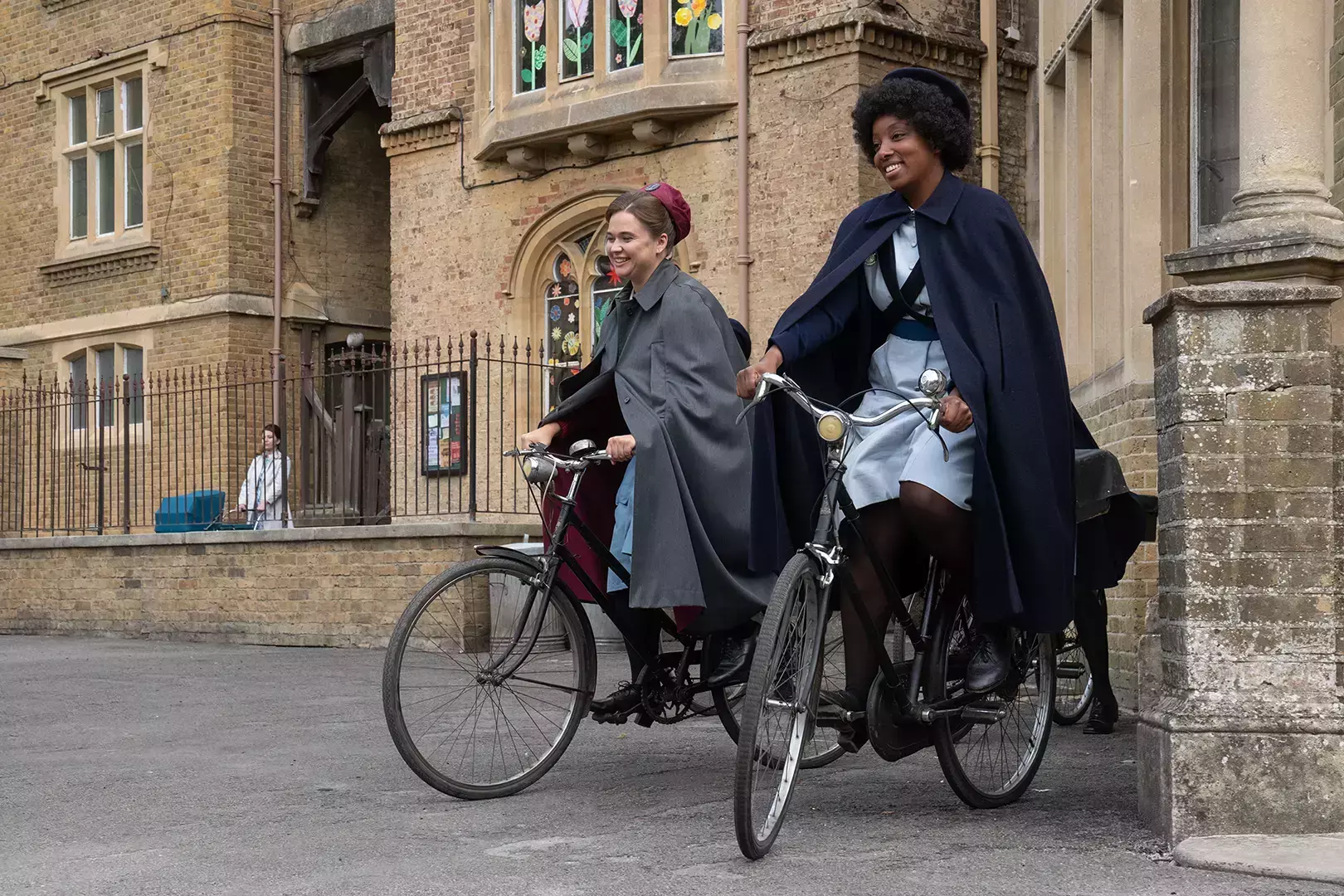The narrator’s words as the episode opens are particularly meaningful given the post-pandemic world in which we currently live: “Learning and growth can be solitary pursuits. We close doors, turn inward, and seek a private space from which to thrive. And yet we need each other as friends, as family, as fellow students in the school of life”. Emerging from the isolation of the pandemic has perhaps taken longer and been much more difficult than I think many of us had imagined. Because we couldn’t physically be in the company of others during the pandemic, we learned to embrace solitude. We grew apart together.
This episode highlighted the importance of community and how much we depend upon one another. The character Mrs. Brewster, whose husband had abandoned her and her young child, was an all-too-familiar story. Living in an environment that was killing her young child – mold growing on her walls and bedding – Mrs. Brewster did not have the luxury of being able to pick up and move residences. Shelagh Turner (played by Laura Main) did what midwives do day in and out in advocating for Mrs. Brewster with the public housing director to get the mold issue cleared up. Mahatma Gandhi once said, “The true measure of any society can be found in how it treats its most vulnerable members.” Knowing that our society’s most vulnerable often lack the basic necessities of life – food, medical care, a place to call home – says so much.
The conversation amongst the midwives wherein the question was asked “Can you really NURSE a person if you don’t know who they are? Can you do your best work if you don’t know where they come from, or what they’ll go home to?” struck a chord in me. If we don’t know/can’t understand the circumstances from which our patients come, where they are going when we discharge them from hospitals, how can we truly understand what they need and what we can help facilitate for them?
At the end of the episode, we see midwife Nancy Corrigan (played by Megan Cusack) walking into a meeting about the nursing shortage. Remember that the midwives of the day were also public health nurses, which is why we sometimes see storylines involving non-obstetric or gynecologic conditions, and the midwives caring for children and men. To give some context to the situation in this episode, there was an ordered study of nursing pay and conditions mandated in 1968 in the UK. Numerous recommendations came as a result of that report, including a 9% pay increase.
What we have heard and will continue to hear about this season is the Raise the Roof pay campaign of 1969. The Royal College of Nursing, which oversees the profession even today in the UK, sent a letter to citizens across the UK, asking them to sign in support of nursing (and the pay raise among other things) and then send it to the Secretary of State for Health and Social Security. The public responded in kind with over one million letters sent from private citizens to the Secretary. Additionally, posters and notices of support popped up all over London, in the underground rail system, and on buses and cars. After all was said and done, nurses in Britain came away with a 22% pay increase.
As the saying goes, history repeats itself and we find ourselves now amidst a nursing shortage of critical proportions. I will be watching the midwives of Nonnatus House navigate the shortage of their time to see what I can learn.
